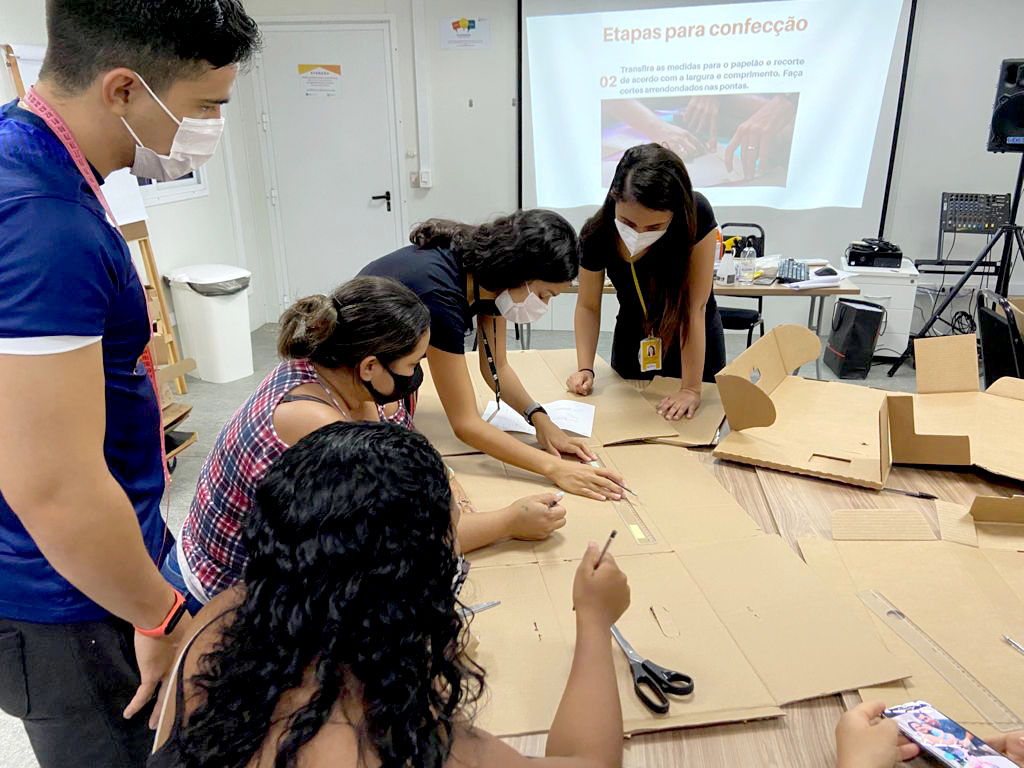Did you know that it is possible to create orthoses with low-cost, recyclable products?
Extensor orthoses are devices to leave the upper and lower limbs extended (straight) and, therefore, prevent deformities and provide support. They are important in the treatment of children with neurological changes that modify muscle tone. For the first time, the Santos Dumont Institute (ISD) promoted the Extension Orthosis Creation Workshop this Tuesday (24/08).
To make the orthoses, items such as cardboard, acrylic blanket, plastic film, fabric, Velcro, thread, needle, fabric glue, scissors, white and Styrofoam glue, pens and rulers were used.
The construction process follows the line “Do it yourself”, or “do it yourself” in free translation. However, it is necessary to be monitored by a professional in the areas of Physiotherapy and/or Occupational Therapy to indicate and verify the measurements of the orthoses to be constructed.
“The children were indicated for the use of orthoses, but the team realized how difficult it was for them to acquire these products. So, the construction of this device was the union of knowledge (Occupational Therapy and Physiotherapy) to solve a problem. We realized that when the family gets “hands on” to make any equipment, adherence becomes more effective. That’s why the idea came for family members to do it together with the team”, comments Thays Machado, multi-professional preceptor in Occupational Therapy at ISD.
The Workshop was taught by her and the students of the Multiprofessional Residency in Health Care for People with Disabilities, Andrezza Viana and Érica Silva. Students of the Physiotherapy course at the Federal University of Rio Grande do Norte (UFRN), accompanied by Prof. Nayara Oliveira, participated in the Workshop as a way of experiencing the daily practice of the profession and also getting to know Anita's service structure.
Orthoses manufactured with these low-cost products can be used in children with altered upper and lower limb movements caused by neurological disorders such as microcephaly, cerebral palsy, epilepsy and spinal cord injury.
Text: Ricardo Araújo / Ascom – ISD
Photograph: Ricardo Araújo / Ascom – ISD
Communication Office
comunicacao@isd.org.br
(84) 99416-1880
Santos Dumont Institute (ISD)
It is a Social Organization linked to the Ministry of Education (MEC) and includes the Edmond and Lily Safra International Institute of Neurosciences and the Anita Garibaldi Health Education and Research Center, both in Macaíba. ISD's mission is to promote education for life, forming citizens through integrated teaching, research and extension actions, in addition to contributing to a fairer and more humane transformation of Brazilian social reality.













